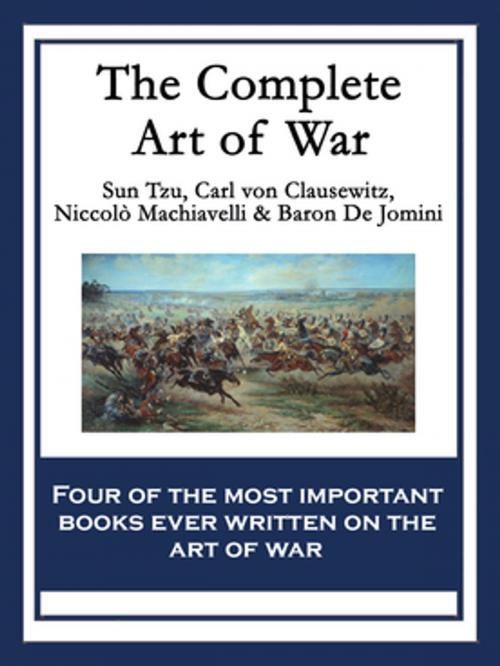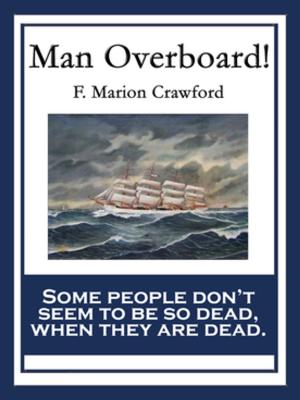The Complete Art of War
The Art of War by Sun Tzu; On War by Carl von Clausewitz; The Art of War by Niccolò Machiavelli; The Art of War by Baron de Jomini
Nonfiction, Science & Nature, Technology, Military Science, History, Military, Strategy| Author: | Sun Tzu, Baron De Jomini, Niccolò Machiavelli, Carl von Clausewitz | ISBN: | 9781633846845 |
| Publisher: | Wilder Publications, Inc. | Publication: | June 10, 2015 |
| Imprint: | Wilder Publications | Language: | English |
| Author: | Sun Tzu, Baron De Jomini, Niccolò Machiavelli, Carl von Clausewitz |
| ISBN: | 9781633846845 |
| Publisher: | Wilder Publications, Inc. |
| Publication: | June 10, 2015 |
| Imprint: | Wilder Publications |
| Language: | English |
Collected here in this 4-in-1 omnibus are the most important books ever written on the art of war: 'The Art of War' by Sun Tzu; 'On War' by Carl von Clausewitz; 'The Art of War' by Niccolò Machiavelli, and 'The Art of War' by Baron De Jomini. These four books will give you as complete a view on the art of war as you can attain. Sun Tzu's 'The Art of War' is the most important book ever written about warfare and conflict. Lionel Giles' translation is the definitive edition and his commentary is indispensable. 'The Art of War' can be used and adapted in every facet of your life. This book explains when and how to go to war, as well as when not to. Learn how to win any conflict whether it be on the battlefield or in the boardroom. Although Carl von Clausewitz participated in many military campaigns, he was primarily a military theorist interested in the examination of war. 'On War' is the West's premier work on the philosophy of war. Other soldiers before him had written treatises on various military subjects, but none undertook a great philosophical examination of war on the scale of Clausewitz's. 'On War' is considered to be the first modern book of military strategy. This is due mainly to Clausewitz's integration of political, social, and economic issues as some of the most important factors in deciding the outcomes of a war. It is one of the most important treatises on strategy ever written, and continues to be required reading at many military academies. Niccolò Machiavelli considered 'The Art of War' to be his greatest achievement. Here you will learn how to recruit, train, motivate, and discipline an army. You will learn the difference between strategy and tactics. Machiavelli does a masterful job of breaking down and analyzing historic battles. This book of military knowledge belongs alongside Sun-Tzu and Clausewitz on every book shelf. Antoine-Henri Jomini was the most celebrated writer on the Napoleonic art of war. Jomini was present at the majority of the most important battles of the Napoleonic Wars. His writing, therefore, is the most authoritative on the subject. In this fully illustrated version of 'The Art of War', he advises: "The art of war, as generally considered, consists of five purely military branches,-viz.: Strategy, Grand Tactics, Logistics, Engineering, and Tactics. A sixth and essential branch, hitherto unrecognized, might be termed Diplomacy in its relation to War. Although this branch is more naturally and intimately connected with the profession of a statesman than with that of a soldier, it cannot be denied that, if it be useless to a subordinate general, it is indispensable to every general commanding an army."
Collected here in this 4-in-1 omnibus are the most important books ever written on the art of war: 'The Art of War' by Sun Tzu; 'On War' by Carl von Clausewitz; 'The Art of War' by Niccolò Machiavelli, and 'The Art of War' by Baron De Jomini. These four books will give you as complete a view on the art of war as you can attain. Sun Tzu's 'The Art of War' is the most important book ever written about warfare and conflict. Lionel Giles' translation is the definitive edition and his commentary is indispensable. 'The Art of War' can be used and adapted in every facet of your life. This book explains when and how to go to war, as well as when not to. Learn how to win any conflict whether it be on the battlefield or in the boardroom. Although Carl von Clausewitz participated in many military campaigns, he was primarily a military theorist interested in the examination of war. 'On War' is the West's premier work on the philosophy of war. Other soldiers before him had written treatises on various military subjects, but none undertook a great philosophical examination of war on the scale of Clausewitz's. 'On War' is considered to be the first modern book of military strategy. This is due mainly to Clausewitz's integration of political, social, and economic issues as some of the most important factors in deciding the outcomes of a war. It is one of the most important treatises on strategy ever written, and continues to be required reading at many military academies. Niccolò Machiavelli considered 'The Art of War' to be his greatest achievement. Here you will learn how to recruit, train, motivate, and discipline an army. You will learn the difference between strategy and tactics. Machiavelli does a masterful job of breaking down and analyzing historic battles. This book of military knowledge belongs alongside Sun-Tzu and Clausewitz on every book shelf. Antoine-Henri Jomini was the most celebrated writer on the Napoleonic art of war. Jomini was present at the majority of the most important battles of the Napoleonic Wars. His writing, therefore, is the most authoritative on the subject. In this fully illustrated version of 'The Art of War', he advises: "The art of war, as generally considered, consists of five purely military branches,-viz.: Strategy, Grand Tactics, Logistics, Engineering, and Tactics. A sixth and essential branch, hitherto unrecognized, might be termed Diplomacy in its relation to War. Although this branch is more naturally and intimately connected with the profession of a statesman than with that of a soldier, it cannot be denied that, if it be useless to a subordinate general, it is indispensable to every general commanding an army."















